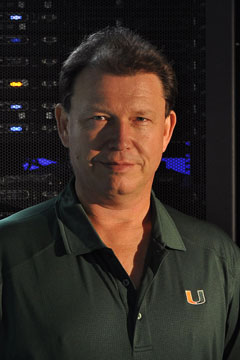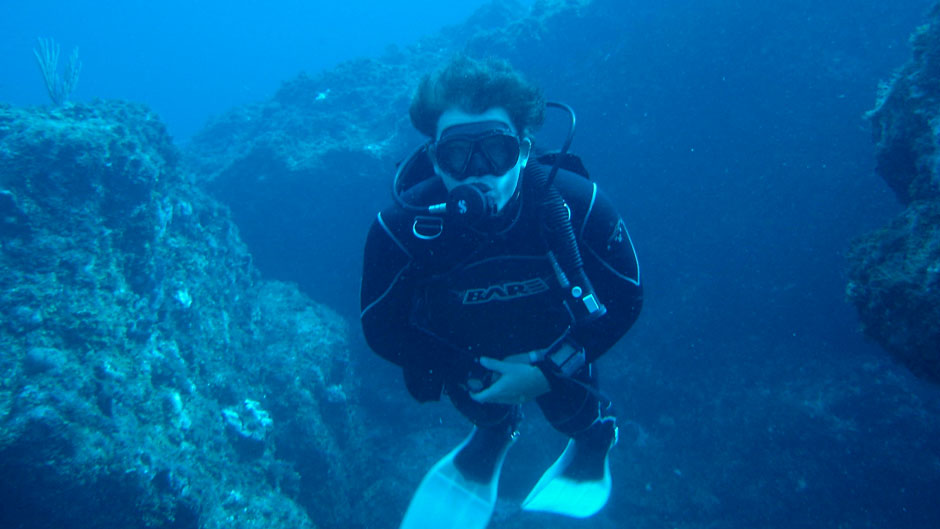In 2003, when Arthur Gleason was a graduate student at the University of Miami Rosenstiel School of Marine and Atmospheric Science, he assembled a team of biologists, geologists, and engineers who developed practical, inexpensive tools to photograph the seabed with thousands of overlapping pictures.
At the time, the technology for underwater photomosaic data collection was too complex. It required expensive, specialized equipment and exhaustive manual labor. But, by extensively researching and publicizing these techniques, Gleason’s efforts led to the widespread adoption of photomosaic technology for coral reef conservation around the world—and his recent selection by the Pew Charitable Trusts to join the Pew Fellows Program in Marine Conservation.
“Underwater photographic mosaics are constructed by stitching together thousands of overlapping high-resolution pictures of the seabed,” said Gleason, now an associate scientist in the College of Arts and Sciences’ physics department. “The clarity and resolution in a wide expansive field of view is a powerful tool that allows scientists to do all sorts of measurements that in the past were difficult to accomplish.”
 One of eight international scientists and conservationists chosen by Pew Trusts this year, Gleason will receive a $150,000 grant over three years to address some of the most critical challenges facing marine conservation. For him, this includes the dramatic decline of the Caribbean’s coral reefs. He will provide scientific knowledge to help practitioners better understand the performance of various coral reef restoration approaches and develop more effective reef conservation strategies.
One of eight international scientists and conservationists chosen by Pew Trusts this year, Gleason will receive a $150,000 grant over three years to address some of the most critical challenges facing marine conservation. For him, this includes the dramatic decline of the Caribbean’s coral reefs. He will provide scientific knowledge to help practitioners better understand the performance of various coral reef restoration approaches and develop more effective reef conservation strategies.
“With the help of the Pew grant, I’ll have a chance to share this resource with people across the Caribbean by scheduling workshops, meetings, and creating guides and instructional materials,” Gleason said. “My research could help secure the ecological function and genetic diversity of coral reefs for future generations and will contribute to that goal by enabling regional, long-term effects of active coral reef interventions to be understood.”
His research also could transform coral reef conservation by determining how to best scale up active reef restoration initiatives and create conditions favorable to natural coral reef rehabilitation.
“The bigger picture here is why coral reefs have seen such a dramatic decline, particularly in the Caribbean regions where we have seen the most degradation,” Gleason said. “It’s important to create solutions and design technology and proper data collection to assist in monitoring and quantifying the scope of the problem and understanding the solutions to these problems.”
Gleason joins Pew’s active community of 180 fellows in more than 39 countries. Selected by an independent international committee composed of senior professionals in marine science and conservation, each fellow is recognized for their outstanding record of applying high-quality, evidence-based research to protect marine ecosystems and wildlife.

